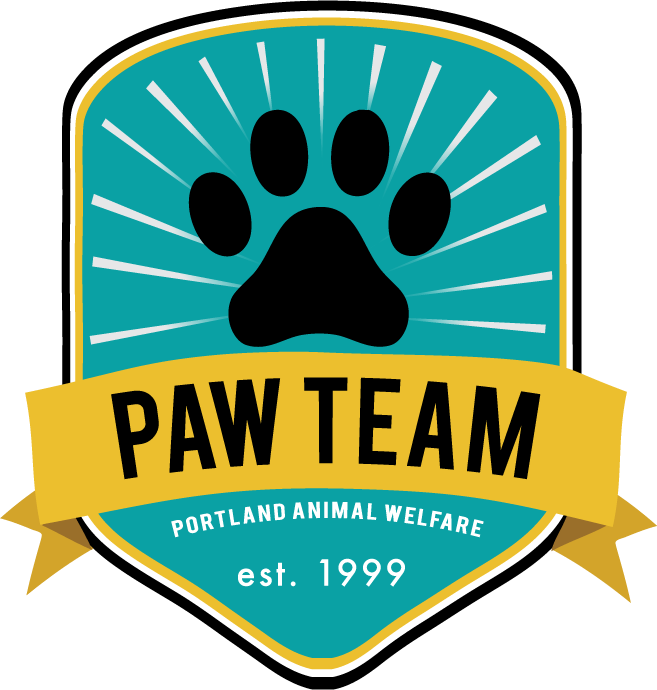Portland Animal Welfare Team has been helping vulnerable pets and their families since 1999. Through out Continued Care Program and monthly drop-in wellness clinics, we help 3,000+ pets receive high-quality, ongoing veterinary care completely free of charge, each year. PAW Team understands the power of animal companionship and the countless benefits a person enjoys when they share their life with a loving pet. We have been in our communities helping pets for almost three decades, all supported by private donations and grants. PAW Team receives zero tax dollars or government funding and with your help, we will continue to be here, helping pets and saving lives for decades to come. But we need your support to continue this vital mission. Access to affordable veterinary care in Portland has only gotten more inaccessible and expensive. Support PAW Team by becoming a program or event sponsor today.
-
Pick a program and aligns with your values and show your support:
Continued Care program supports the long-term care of PAW Team patients with chronic or lifelong medical conditions with regular appointments, medication, prescription food, and more.
Click here for more information on Continued Care sponsorship opportunities.
-
PAW Team hosts a number of fundraising events and donations drives throughout the year:
PawPalooza is our signature gala and fundraiser, hosted ever year in early fall. The not-quite black tie event is sees 175 invited supporters enjoy an evening of delicious food and signature cocktails, silent auction & raffles, while hearing impact stories from PAW Team clients, veterinarians, and staff.
Click here to learn more about PawPalooza and sponsorship opportunities.
Other Events with sponsorship opportunities: Santa Paws, and Willamette Week’s Give!Guide.
Interested in hosting a PAW Team fundraiser or event? Click here for a resource guide.
-
PAW Team’s Pet Food and Supply Bank is where we see the most need. Each day, an average of 100 families visit the Pet Food and Supply Bank to access supplemental pet food, flea control and supplies like crates and pet beds. For populations that may be living on the margins, this supplemental support can be the difference between choosing to feed your pet or yourself.

